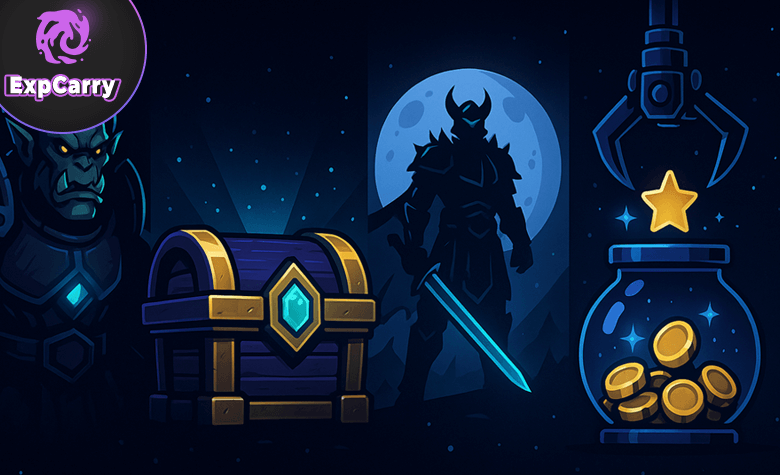Psychology of Reward: Why Games Keep Us Glued to the Screen

The Dopamine System – The Engine of Motivation
Our brain loves rewards. Whenever we experience something unexpectedly positive, such as a rare drop or a PvP victory against a stronger opponent, dopamine is released. This “happiness hormone” strengthens the link between action and result, making us want to experience that feeling again.
Interestingly, it’s not the reward itself that drives us, but the anticipation of it. That’s why systems with random elements, so-called Variable Rewards, are so effective compared to traditional progression in games like WoW. When the outcome is unpredictable, the tension remains — we never know when the next exciting moment will come.
This very principle is used by games like World of Warcraft, Destiny 2, or Genshin Impact. Loot drops, rare mounts, and seasonal rewards all follow the pattern of irregular but potentially huge payoffs.
Luck, Control, and the Thrill of the Unknown
Why do random mechanics still work so well, even for experienced players who already understand the system? The reason is simple: humans have a deep need for control. We want to believe our actions influence the outcome, even when it’s objectively random. In gaming, this is known as the “Illusion of Control” effect.
For example, many players develop personal rituals when opening chests or crafting — using a specific time, key combination, or location in the interface. Of course, it doesn’t affect the randomness, but it gives a sense of influence, which is psychologically rewarding.
Comparison with Classic RNG Systems
These mechanics can be found in nearly every game genre. They combine randomness with the illusion of control, keeping players emotionally invested. When timing or skill appears to matter, even in a random outcome, the brain perceives it as meaningful participation — not pure chance.
From Loot to Level – How Developers Build Tension
The real art lies in balancing rewards. Too frequent rewards lose their value, while too rare ones cause frustration. Successful games create a “sweet spot” — a mix of small wins, steady progress, and occasional, highly emotional moments. The combination keeps players motivated both short- and long-term.
Many games therefore use multi-layered reward systems:
- Instant Rewards: XP, gold, sound effects, animations
- Mid-term Goals: new gear, achievements, rank upgrades
- Long-term Milestones: legendary drops, rare titles, cosmetic prestige items
How Coaches and Pro-Gamers Use Reward Cycles
Experienced players understand these systems and use them to their advantage. They know when grinding is worth it and when it’s better to take a more efficient route. In classic MMOs or action RPGs, progress isn’t just about skill — it’s also about managing RNG, the random number generator that defines drops and outcomes.
Good coaches analyze these mechanics to optimize strategies. Understanding how rewards are distributed allows players to plan their progress — through efficient farming routes, event rotations, or specific builds. This saves time, resources, and, most importantly, frustration.
Why We Keep Playing – And Why That’s Okay
Reward systems are neither good nor bad in themselves; they are tools that guide and motivate players. What matters is how consciously we interact with them. Understanding why certain systems feel so powerful helps us stay in control instead of being controlled by them.
Ultimately, gaming is fascinating because it offers a controlled form of unpredictability — a space where we can play with luck, risk, and success without real consequences. When we understand this dynamic, we don’t just win in the game — we also gain insight into how motivation and frustration work in real life.
Conclusion
Whether it’s dungeons, loot boxes, or progression systems — the principle remains the same. Unpredictable rewards keep us in the flow. Those who understand this mechanism can use it strategically instead of being driven by it. And that’s what separates casual players from professionals.